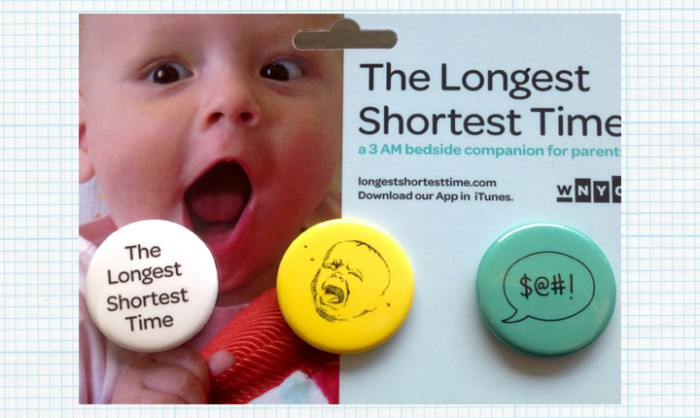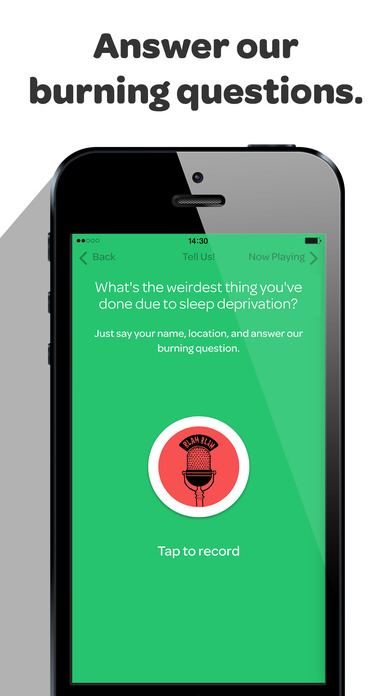
New parenthood is a time of sleep deprivation and uncertainty. Hillary Frank tells a story about a friend of hers who had a baby a few years before she did. “One night, she turned on her computer and googled the words ‘help me,'” Frank said. “She really just desperately needed help and didn’t know where to find it.”
 Frank, the host of the parenting podcast The Longest Shortest Time, wanted from the show’s beginning to reach listeners when they need help the most. The podcast is released every other week at 3:00 a.m., that depressing in-between parenting hour when the morning is both too close and still very far away. And The Longest Shortest Time has an iPhone app that draws listeners into the podcast by letting them record responses to questions from directly within the app. Those responses are then woven into future episodes of the show.
Frank, the host of the parenting podcast The Longest Shortest Time, wanted from the show’s beginning to reach listeners when they need help the most. The podcast is released every other week at 3:00 a.m., that depressing in-between parenting hour when the morning is both too close and still very far away. And The Longest Shortest Time has an iPhone app that draws listeners into the podcast by letting them record responses to questions from directly within the app. Those responses are then woven into future episodes of the show.
Frank, a former producer for This American Life, started self-publishing The Longest Shortest Time in 2010, shortly after the birth of her daughter. Last year, WNYC picked it up. Frank’s partnership agreement with WNYC included a provision for building an iPhone app; at some point, with more funding, Frank hopes to expand to Android as well.
“Right from the start, listeners were interested in being involved,” Frank said. “I really wanted to include their actual voices in the show.” Before the app, she could only pick one or two guests to appear on each episode, but thought “it would be amazing if we could feature lots of voices in a sound collage.”
Early on, that meant asking listeners to record voice memos on their phones and then email the attachments in, but that was complicated and often led to poor sound quality. “I noticed Radiolab has an app where people record their own voices for their ads,” Frank said, and that inspired the idea for an audio-recording feature within a dedicated Longest Shortest Time app. While Radiolab’s app costs $2.99, however, The Longest Shortest Time’s app is free.
The technology used in the app was built by WNYC’s interactive media team. It started off as a simple crowdsourcing platform that allowed users to share content, and was upgraded in 2014 to allow the upload of audio.
Every two weeks, listeners receive a prompt geared toward an upcoming episode. Right now, it’s “Submit your sex questions for our experts!” for a series on sex after childbirth; other questions have included “When has your kid misinterpreted how the world works?” and “What’s the weirdest thing you’ve done due to sleep deprivation?” (That last one was inspired by a thread on the Longest Shortest Time Mamas Facebook page; one new mom posted that she’d tried to put her contact lens on her nipple instead of in her eye.) Here’s an episode on parenting resolutions that wove together many listeners’ voices:
The two-minute cut-off for recordings helps keep people from getting too long-winded; users can also re-record if they want to. Recordings go straight into WNYC’s CMS so the producers can pull them out, put them in the show and edit them further for length if needed.
“When you’re going through something difficult,” said Frank, “the first thing you want to hear is a person’s voice in your ear telling you that you’re not alone.”